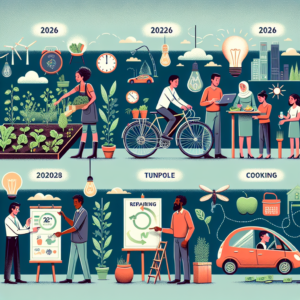The Impact of Covid-19 on Global Markets
The Impact of Covid-19 on Global Markets
From the time the World Health Organization declared COVID-19 as a pandemic in March 2020, the global economy has been on a roller coaster ride. Let’s explore how this virus has significantly affected different facets of the global markets.
Global Stock Markets
When the virus started spreading across the world, global stock markets faced unprecedented volatility. Fears over the unknown implications caused significant selling pressures, with markets recording some of their greatest declines in history. Unfortunately, for many businesses, their stock has not rebounded, leaving companies grappling with the damage.
Panic in Commodity Markets
Commodity markets have also been heavily impacted. As transport and industrial processes came to a standstill, the global demand for oil plunged dramatically, leading to a downfall in prices. Countries significantly reliant on oil exports have experienced economic contraction as a result.
Challenges in the Manufacturing Sector
Factories worldwide had to pause operations due to lockdown measures and shortages of components. Weak consumer demand compounded these issues. Automobile, electronics, and luxury goods sectors have been particularly affected. Additionally, many companies are now rethinking their dependence on single-sourced, geographically concentrated supply chains, prompting a possible shift toward more local production in the future.
A Take on Global Real Estate Markets
The global real estate market is facing serious headwinds as well. The commercial real estate sector, particularly office spaces and retail, have been hit with reduced demand as work-from-home culture has taken hold, and in-person shopping reduced due to lockdown restrictions. Conversely, residential real estate in suburban or rural areas experienced a surge in demand as people seek lower density living environments.
Surprise Winners in the Stock Market
On a brighter note, sectors and industries relevant to the ‘stay-at-home’ trend and digital world have experienced positive growth in their stocks. Companies within the technology sector, including e-commerce, remote work tools, streaming services, and digital payments, have seen a significant boost in their profits and market capitalization.
And the Future?
The future of global markets remains uncertain, as a return to the ‘normal’ pre-COVID world seems unlikely. Instead, a ‘new normal’ is emerging, which presents both challenges and opportunities. Businesses need to be adaptable, letting go of the old ways that cease to work and embracing new strategies that ride the wave of change.
Implementing New Innovations and Technologies
Despite the uncertainty, the crisis offers an opportunity for innovation and digital transformation. Companies can leverage new technologies to facilitate remote working, digital sales and services, or more automated production systems. It is a step further towards achieving digital resilience and competitiveness in this new era.
Investors too are presented with unique opportunities. The current volatility and changes in market dynamics may present potential profitable scenarios given careful thought, strategic planning, and rigorous risk assessment.
In spite of these challenging circumstances, we can view it as a catalyst for change and an opportunity for growth, resilience, and sustainability. With collaborative effort across sectors and borders, the world can strive towards a swift economic recovery, forging a brighter and more resilient post-COVID global market.
The full extent of COVID-19’s impact remains to be seen, and it’s certain that its implications will resonate for years to come. Thus, businesses and governments alike must be vigilant in tracking, adapting, and making strategic decisions to navigate these challenging times.
Conclusion
COVID-19 has massively disrupted global markets. However, this is also an epoch-making opportunity to build back a global market system that is more durable, flexible, and better equipped to deal with future crises. In the end, our collective experiences during this pandemic will define the world we live in post-COVID.
* The post is written by AI and may contain inaccuracies.





